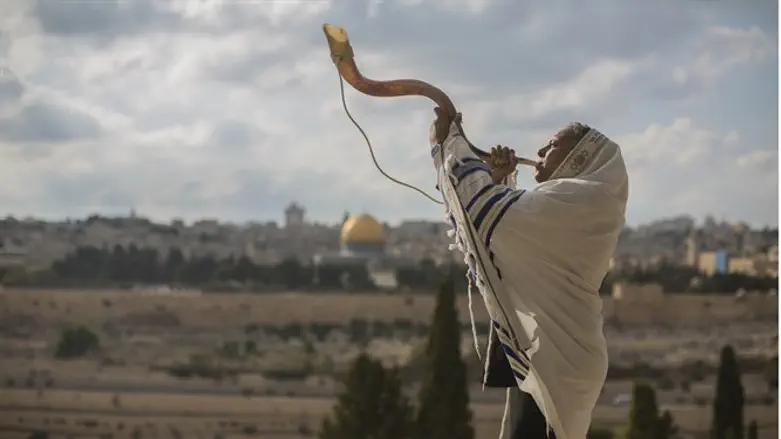
Rabbi Dov Lior clarified that sounding shofar and taking lulav on Shabbat which falls on Rosh Hashana or Sukkot, respectively, is also forbidden on the Temple Mount, even though in Temple times both lulav and blowing shofar took place on Shabbat in the Temple.
The ruling was published this year ahead of the holidays, as the first day of Rosh Hashanah as well as the first holiday of Sukkot this year will coincide with Shabbat.
The background to Rabbi Lior's ruling is concerns among Temple Mount activists that some may attempt, if the State allows them to ascend the Temple Mount on Shabbat, to sound the shofar on the first day of Rosh Hashanah.
Rabbi Lior ruled that even on the Temple Mount, one should not blow shofar or take lulav on Shabbat. "See the Chiddushei Rabbeinu Meir Simcha (Sukkah, beginning of chapter 4) who wrote explicitly that in these days there is no shofar or taking lulav in Jerusalem on Shabbat, because there is no actual Temple, even though the sanctity of the place has not dissipated and it is forbidden to enter there in impurity," he wrote..
"Therefore in our time," Rabbi Lior added, "even one who ascends the Temple Mount in purity on Shabbat, shall not blow shofar and shall not take lulav."
Although the State does not allow, even on weekdays, to blow shofar or take lulav on the Temple Mount, in recent years attempts have been made to do so anyway, with some ending in arrests.
For example, on Rosh Hashanah two years ago, one of the Temple Mount visitors sounded a shofar he had hidden under his shirt on the first day of Rosh Hashanah. Attempts to take lulav on the Temple Mount have also occurred in recent years and some of those responsible have been detained.
